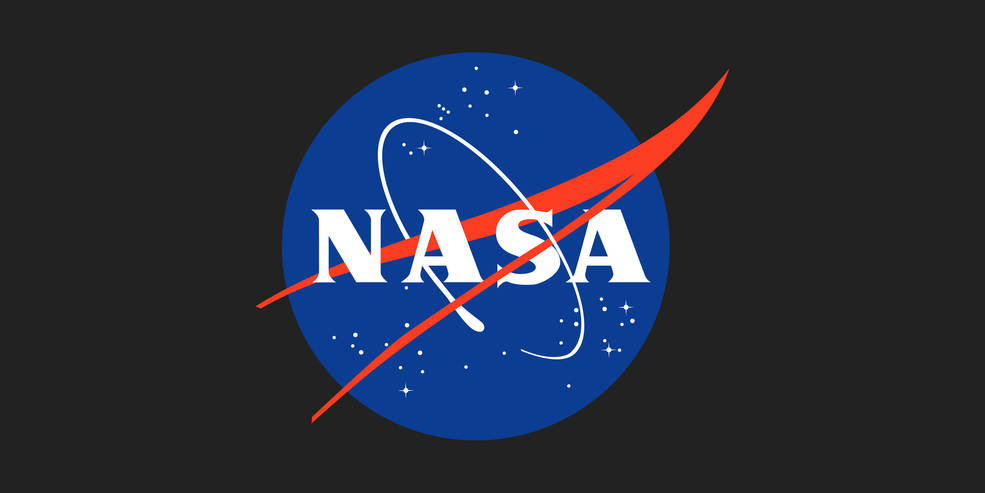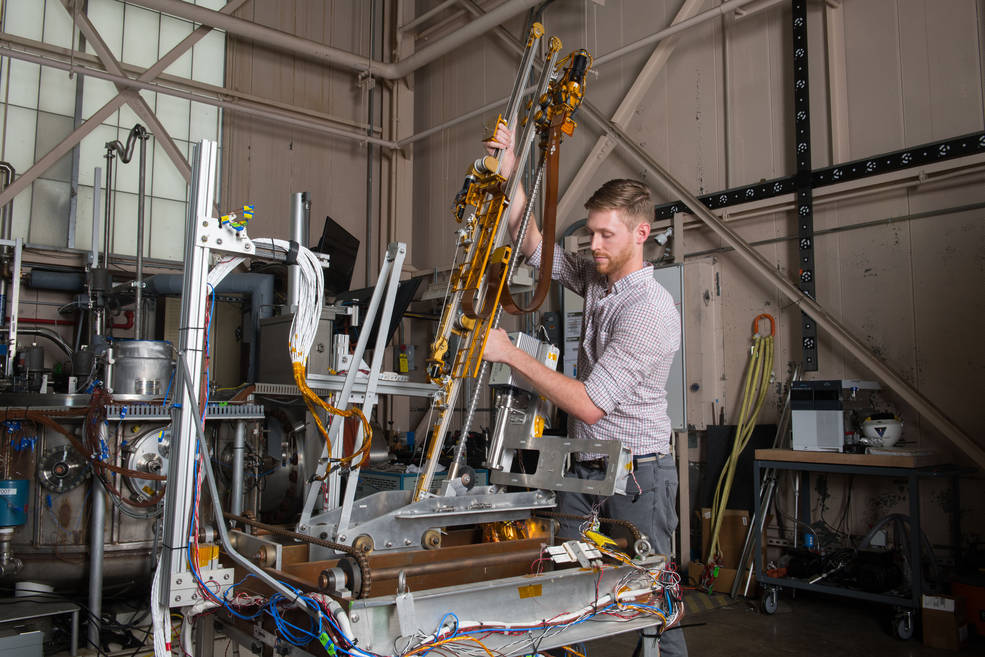Navigating Space and Sound: Jesse Bazley Supports Station Integration and Colleagues With Disabilities
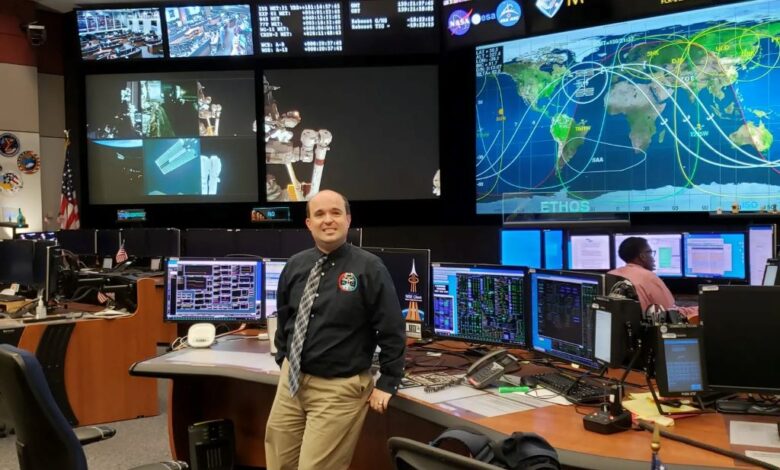
A salute is widely recognized as a display of respect, but did you know it also means ‘hello’ in American Sign Language?
It is one of the signs that Jesse Bazley, International Space Station/Commercial Low Earth Orbit Development Program integration team lead, subtly incorporates into his daily interactions with colleagues at NASA’s Johnson Space Center in Houston.
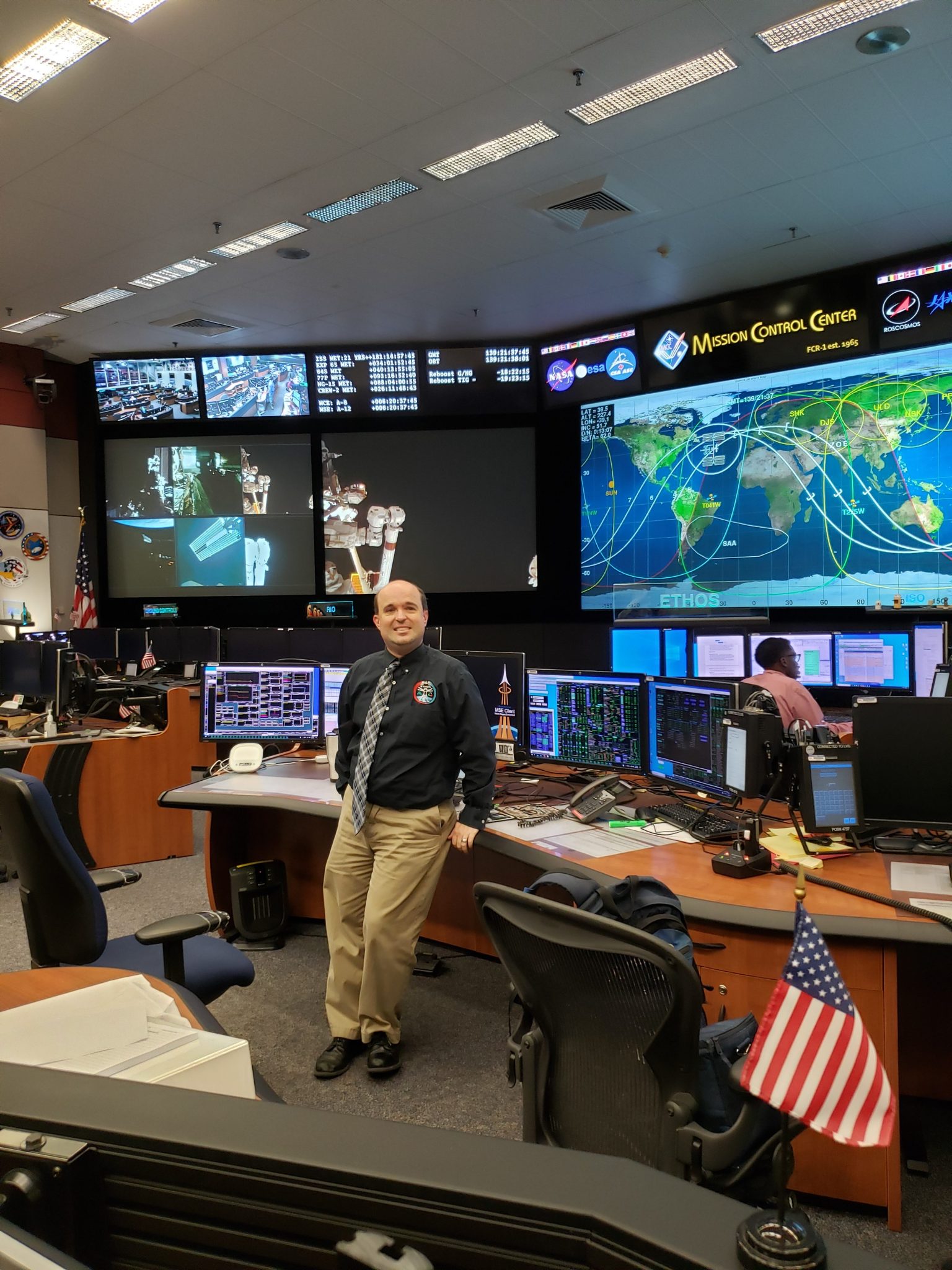
In May 2021, Jesse Bazley worked his final shift as an Environmental and Thermal Operating Systems flight controller in the Mission Control Center at NASA’s Johnson Space Center in Houston.
Image courtesy of Jesse Bazley
Bazley is hard of hearing, which has at times presented challenges in his daily work – particularly during his stint as an Environmental and Thermal Operating Systems flight controller for the space station. “Working on console [in the Mission Control Center], you must listen to dozens of voice loops at a time, sometimes in different languages,” he said, adding that the standard-issue headset for flight controllers was not compatible with his hearing aids. Bazley adapted by obtaining a headset that fit over his hearing aids, learning how to adjust the audio system’s volume, and limiting over-the-air discussions when possible.
Bazley has been part of the NASA team for 17 years, filling a variety of roles that support the International Space Station. One of his proudest achievements occurred early in his tenure. Bazley was an intern at Marshall Space Flight Center in Huntsville, Alabama, in 2006 when the space station’s Water Recovery System was being tested. The system converts the station’s wastewater into drinkable water for the crew. When he arrived at Johnson one year later, his first assignment was to assist with the system’s procedure and display development for its incorporation into the space station’s core operations. “Now, 16 years later, it is commonplace for the space station to ‘turn yesterday’s coffee into tomorrow’s coffee’,” he said.
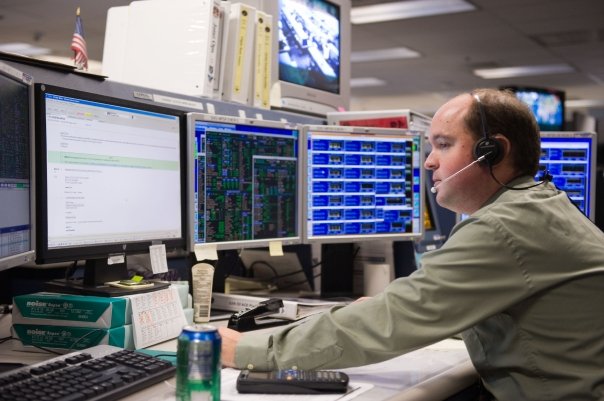
Jesse Bazley supporting the Atmosphere and Consumables Engineer console during the STS-127 mission in July 2009.
NASA
His favorite project so far has been integrating the station’s Thermal Amine Scrubber – which removes carbon dioxide from the air – into station operations. “I worked it from the beginning of NASA’s involvement, helping the provider with software testing and the integration of a brand-new Mission Control Center communications architecture,” he said.
Today, Bazley works to integrate subject matter experts from Johnson’s Flight Operations Directorate (FOD) into the processes of the International Space Station and Commercial Low Earth Orbit Development Programs. “I help pull together FOD positions on topics and coordinate reviews of provider materials to ensure that the operations perspective is maintained as development moves forward,” he explained.
While Bazley no longer supports a console, he must continue adapting to difficult hearing environments. He uses the captioning tools available through videoconferencing software during frequent team meetings, for example. “It’s important to understand that people have visible and invisible disabilities,” he said. “Sometimes their request for a remote option is not because they want to avoid an in-person meeting. It may be that they work best using the features available in that virtual environment.”
Bazley also chairs the No Boundaries Employee Resource Group, which promotes the development, inclusion, and innovation of Johnson’s workforce with a focus on employees with disabilities and employees who are caregivers of family members with disabilities.
From these diverse roles and experiences, Bazley has learned to listen to his gut instincts. “In flight operations, you must work with short timelines when things happen in-orbit, so you have to trust your training,” he said. “Understanding when you have enough information to proceed is critical to getting things done.”
Bazley looks forward to the further commercialization of low Earth orbit so NASA can focus resources on journeying to the Moon and Mars. “Aviation started out as government-funded and now is commonplace for the public. I look forward to seeing how that evolution progresses in low Earth orbit.”
His advice to the Artemis Generation is to consider the long-term impact of their actions and decisions. “What looks great on paper may not be a great solution when you have to send 10 commands just to do one task, or when the crew has to put their hand deep into the spacecraft to actuate a manual override,” he said. “The decisions you make today will be felt by operations in the future.”

